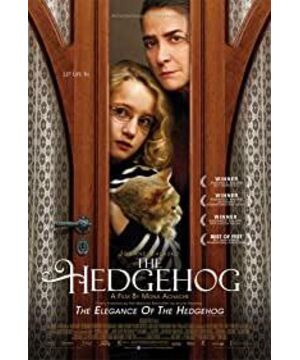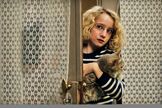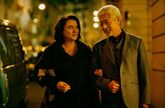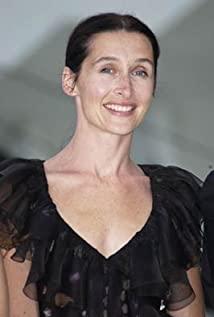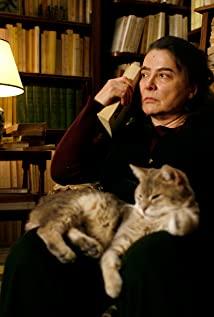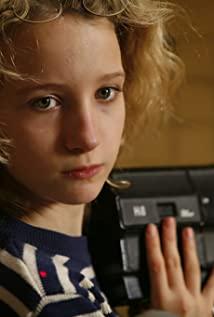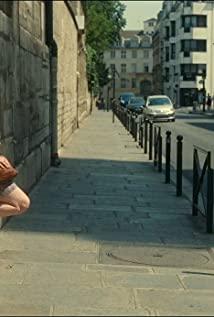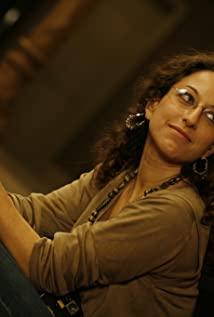movie ended quietly, I first doubted the authenticity of Mr. Ozu (Monsieur Kakuro Ozu).
Imagine there is such a perfect person in your life?
He will show up when you need it most, saying that the first conversation with you is a "fantastic encounter" in your life;
he doesn't care about your humble status as the "gatekeeper (la Concierge)", and will sincerely give Say "thank you" for your job;
he will appreciate you, understand you and respect you, no matter what you look like, no matter what your background or education background;
he will show you his home and be with you Watching a movie will help you understand the Japanese and Oriental cultures you love and look forward to more deeply;
when you say "she didn't recognize me" in surprise, he will seriously say "Because you have never been seen well (C 'est parceque vous fûtes jamais vue)';
he cares for you and gives you gifts that you will like; he will tell you with a serious face on his birthday, "Honey, I have something important to tell you, Honey , We can become friends or until what you want (Renée, Je voudrais vous dire quelquechose de capitale. Renée nous pouvons être amis et et même jusqu'aux vous voulouns.)" moves you;
most importantly, in time In the boundless wilderness, he can meet you in time and recognize you at a glance, even if you are buried in the vast crowd, even if he has never met you before.
Such a new tenant Mr. Ozu, such a him, is a bit too perfect, perfect like a dream of encountering the real self and the ideal self.
This Mr. Ozu should not exist. There is a hint in the movie that the famous Japanese director "Ozu Yasujiro" not only has the same name as this Ozu, but also the director and screenwriter of the movie "Sister Zongfang" they watched together. Such a name is like "The elegance of a hedgehog (L' élégance du hérisson)" The original author’s tribute to his favorite Japanese culture and film director. In addition, the director Yasujiro Ozu actually died of cancer, which is the same as the cause of death of the family members of Mr. Ozu and Hani in the movie.
From another angle, it can also confirm the author’s admiration for Japanese culture. When Paloma first discovered Renée or Madame Michel’s "elegance", she found that she was reading a book, titled It is "Éloge de l'ombre". This Éloge means praise and praise in French, while ombre means shadow and shadow. The Chinese translation is "Yinyi Praise", which is a collection of essays by the Japanese aesthetic master Junichiro Tanizaki. Translation Slightly obscure, in fact, the meaning is almost the same as "Anthem of Shadows". It feels similar to the name of "L'élégance du hérisson" (L'élégance du hérisson).
élégance is a very commendable word in French, and I would use it for people I admire; and the word hedgehog (hérisson) not only refers to the animal with this name, but also refers to "inaccessible people". BTW, the chance of seeing a hedgehog in France should still be quite high.
2. Renée is also a bit "nothing".
Further, I began to doubt whether Renée also really exists?
She is so real in the movie. She introduced herself and said, "My name is Hennie, I am 54 years old and I have been a concierge in Paris for 27 years. I am a widow, short, ugly, obese, and my feet are full of calluses. Sometimes when I get up in the morning, my mouth is as stinky as a mammoth. I have never been to school. I have always been poor, unremarkable, and insignificant. I live alone with my lazy cat with me. This cat has only one characteristic. When it is upset, its paws will smell bad. Although I am not amiable, I can be called polite; although I am not likable, everyone can tolerate me, because I fully conform to the typical gatekeeper in everyone’s mind: old and ugly, grumpy, old It was stuck to the front of the TV, on a pillow with a knitted pillowcase on the side, and there was a fat cat snoring, and the flavor of assorted casserole was overflowing."
This is a real her, a typical Concierge image. Both her appearance and identity are far from "elegant".
However, the one in the movie has lived the life she has longed for. She has a large study room, where she can read quietly, know how to taste dark chocolate, and the most important thing is that she has a lazy cat to accompany her. This is so idealized, people have to feel a little bit "nothing".
But when she refused Mr. Ozu's invitation, she said so truthfully, she said, "But I'd rather not, it's better, believe I'm right, goodbye. "Perhaps every "elegant" person who encounters such a sudden emotion, encounters such a contrasting status, will react like this.
So she hugged and wept with Paloma, who had just walked into her. It was another short-handed encounter between ideal and reality.
Then she chose her ideal, but it made me feel "nothingness" again. In fact, we all know that no matter whether Mr. Ozu exists or not, it is almost impossible for her to meet him in real life.
The accident and her monologue seemed to announce that she had completed her mission in the movie.
The scene before her death was so wonderful, she said, "If I can, I want to laugh." Instead, she worried that the perpetrator, Manuela, would blame herself for the rest of her life. "Mr. Ozu, my heart is like a little cat curled up in a ball, I want to have one last glass of sake with you." "How to define the value of life, Paloma, I hope your future matches your expectations."
3. Ballet Luo Ma (Paloma) perhaps the real hedgehog
I suspect Mr. Ozu's "presence" Heni's "nothingness", but I do not deny the authenticity of the little girl's classmates Patong Luo Ma.
Perhaps the protagonist in it is only Baromar from the beginning to the end, Hani is the ideal, and Mr. Ozu is the ideal ideal.
But are these important? Ozu and Hani, "existence" and "nothingness", are these all important? These are not important at all, because what I have always cared about is Paloma itself. What is important is her, her growth and transformation.
Maybe it is the family growth environment. She is a premature but too heavy girl. She likes to hide from people. Material life can't give her any satisfaction. She is full of loneliness in the world. She doesn't want to jump into the fish tank. Having grown up until death, she likes the self who is chasing the stars the most, and she is afraid of losing this self when she grows up.
So the following passage from her shocked me: "Death is not important, what is important is what you were doing at the moment of death". She is chasing the stars herself, and consciously it will be the best state in her life, and she will never reach it again in the future, so she died without regret. So she decided to commit suicide after filming a film on her 13th birthday. (C'est pour ça que j'ai pris ma décision: à la fin de cette année scolaire, le jour de mes treize ans, je me suiciderai.)
Seeing such a monologue at the beginning of the film makes people shudder, I really want to Hurry up and see how the director helped her untie this knot.
There are several shots of Baroma that make me feel particularly worried. She killed her sister’s fish in an experiment, flushed it into the toilet, and then lied that the fish was dead when she saw it. How much I wanted to tell the little girl in front of the screen that she should be in awe of life; she imagined herself many times The appearance of death, such as a heart attack or a fall from downstairs. In front of the screen, I would like to let you know that the fireworks in the world are so beautiful, how can they commit suicide; what she said about Mr. Ozu’s little daughter’s future is that She was so cruel and ruthless, as if she had seen through this noisy world, I wanted to tell her that even if she was given a life, she could actually work hard to fine-tune her.
She met Hennie when she finished her movie and started her transformation. At first she just waited and watched from a distance, not daring to come closer. She saw Mr. Ozu appear in her life. She saw Hani's unique elegance. She couldn't help but say, "When I grow up, I will be the gatekeeper." "The plus tard is used in it, and there is no mention of je me suiciderai."
In addition, what is mentioned in the wiki, there is a strong description in the original work, but what is not mentioned in the movie: that is, Baroma likes to predict the future to the people around him, and she is very accurate. But the Yoko kid she predicted was completely wrong, because she found that some people’s life paths were full of freshness and possibilities, which began to have a decisive impact on Baroma’s psychology, and she gradually began to doubt it. And thinking about it, adults don’t necessarily jump into a goldfish bowl.
The word Concierge is translated into the word "concierge", which means gatekeeper. The little girl said that she would become a gatekeeper when she grew up. Perhaps she suddenly began to think that the graceful life of the concierge could also make life full of fun. I prefer the translation of the gatekeeper, and I have a feeling of keeping watch.
Of course, the biggest impact is still Hani's sudden departure. She "Never" jumped into the goldfish bowl, but Hani's death made her understand the true meaning of "Never", and she also understood that she should tirelessly pursue this "Never" in the "forever" of life. Go Discover the beauty in every short life. (C'est parce que la mort de Renée lui a appris le sens du "jamais" et qu'elle a compris qu'il faut se consacrer à traquer le "toujours" dans le "jamais", la beauté dans chaque instant de vie .)
So, like a hint, it also confirmed my sense of "emptiness" for Hani. In the end, the fish was miraculously rescued by Hani and returned to Baromar again. This gave her a chance to redeem, completely say goodbye to the world-weary her before, and then respect life and enjoy every true "Taste of Life".
The "Anna Karenina" that Mr. Ozu gave to Hani was finally transferred to Baroma, like a ritual, I clearly felt a kind of "inheritance".
The last shot of the film is equally meaningful. Baroma reluctantly closes the door of Hani's room, her eyes full of deep nostalgia for her, for life itself, and for the real world. I know that she has learned to fear life, and she is very pleased.
So at the end, my long-held heart suddenly became relieved. Baromar, an elegant hedgehog, finally understands that you have to live well for transformation to make sense, and then you can better understand how to live elegantly.
4. "presence" and "nothingness" is not important
is the "presence" and "nothingness" is not important, important is the freedom of life, the courage to self-selected, transformed into their own really like the way she looks, and own discretion Consequences of self-selection. This is a tribute to Jean-Paul Sartre with the movie.
So, those children who have been chasing the stars in their lives like Paloma, I want to tell you that no matter how life disappoints you, please never let go of your heart chasing the stars, because you have this heart. , You will always be the one I like. Even if we never met.
Of course I know that I will not be disappointed.
View more about The Hedgehog reviews


